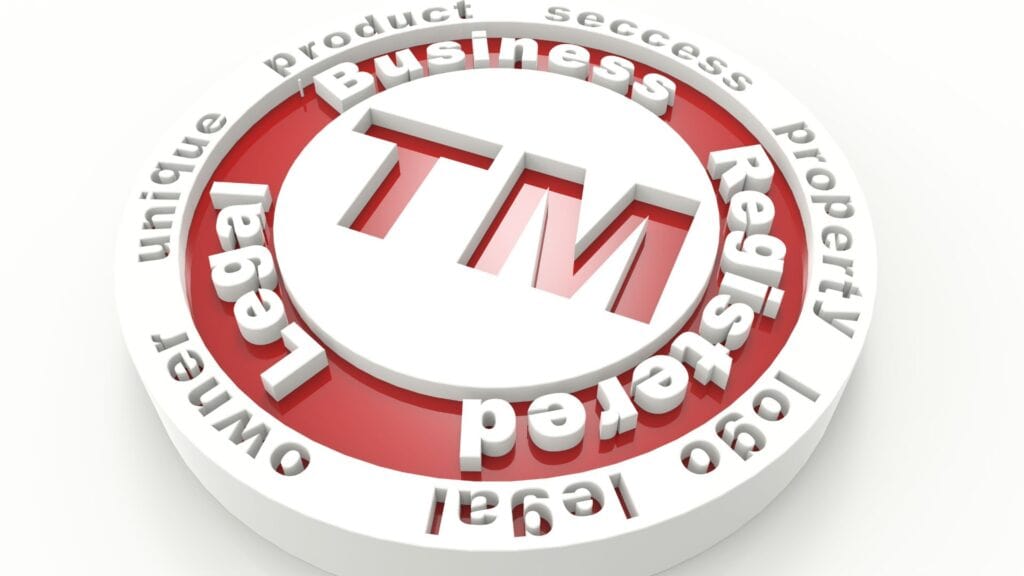Nowadays, safeguarding your intellectual property (IP) is crucial for businesses, no matter their size. When intellectual property is protected and managed effectively, it becomes a valuable commercial asset, providing security and potential revenue streams. Surprisingly, many brands are unaware of the full range of intellectual property rights they can protect and how each aspect can contribute to the success and growth of their business.
In this guide, we’ll explore the key questions surrounding IP protection, offer insights into how it can benefit your brand, and provide practical tips for getting started.
So, what is Intellectual Property?
At its core, intellectual property refers to the intangible property that is the result of creativity. Every business—whether it produces physical goods or provides services—has elements of creativity embedded within it. These creative elements include how your brand presents itself to customers, the products you design, the services you offer, and even the way you operate.
When evaluating your business’s intellectual property, ask yourself:
– Why do customers choose my business or product?
– What are my unique selling points?
– How do we differentiate ourselves from competitors?
– What innovations or changes have we made to improve our business?
Successfully navigating the marketplace takes significant effort, and protecting the IP you develop is one way to safeguard the fruits of your labour over the long term.
Why is Protecting Intellectual Property (IP) Crucial?
Protecting your intellectual property (IP) gives you control over how others use it and under what conditions. By securing strong IP rights, you can more effectively stop competitors from imitating your ideas or concepts, helping you maintain an edge in the marketplace.
With intellectual property protection in place, you have the legal backing to take action against anyone who tries to copy or use your creations without permission. This helps your business safeguard its innovations and keep a leading position in your industry.
The benefits of protecting your intellectual property go far beyond mere legal protection. Here are some key advantages:
1. Security
First and foremost, securing your intellectual property ensures that your business can trade and grow without fear of infringing on someone else’s rights. Clearing your IP for use and registering it offers peace of mind and long-term protection. The last thing you want is to spend years building a successful brand to then find someone had already registered the name you brand under and you are forced to rebrand.
2. Competitive Advantage
In a crowded market, standing out is crucial. Intellectual property, such as trade marks, product designs, and unique processes, can help differentiate your business from the competition. A well-protected brand can create a competitive edge that’s hard to replicate.
3. Customer Loyalty
Customers are more likely to stick with a brand they trust. Protecting your brand and products through intellectual property rights can enhance your reputation and build loyalty, encouraging repeat business.
4. Income Generation
IP can open up new revenue streams. Licensing your intellectual property allows other businesses to use your IP under specific conditions, providing you with additional income. This is especially useful for businesses looking to expand without manufacturing or selling the products themselves.
5. Raising Capital
Just like physical assets, intellectual property (IP) can be used to secure investment or loans, giving businesses a valuable tool to raise capital. Banks and investors are increasingly recognising the value of registered IP as a financial asset, which can help businesses access the funding they need to grow. For instance, NatWest has begun offering loans secured against registered IP, allowing businesses to use their trade marks, patents, and registered designs as collateral.
Other high street banks may also be exploring similar lending models, though specific programs are still emerging. Lloyds Bank and Barclays have shown interest in supporting innovative businesses with strong IP portfolios, though their focus may currently be more on providing tailored advisory services and grants. Beyond traditional banks, alternative lenders, venture capitalists, and private equity firms are increasingly viewing IP as a significant factor when considering investments, especially in sectors like technology and pharmaceuticals where intangible assets are key.
By securing your IP, you open up more avenues for financing and create a stronger case for investors to support your business’s growth
Types of Intellectual Property You Can Protect
Several forms of intellectual property can be protected by law, each offering different benefits:
– Trade Marks
A trade mark is any sign that distinguishes your business’s products or services from others. This could include your business name, logos, tag lines or even specific product names. Securing a trade mark ensures that your brand identity remains uniquely yours and prevents competitors from using confusingly similar marks.
– Copyright
Copyright protects the expression of creative works such as written content, music, artwork, and software. Importantly, copyright arises automatically upon the creation of these works, meaning you don’t need to apply for protection, although it’s essential to maintain evidence of ownership.
– Registered Designs
Registered designs protect the appearance of a product, including its shape, patterns, or configuration. For businesses selling physical goods, registering designs can safeguard the aesthetic elements that make their products stand out.
– Patents
Patents protect inventions and innovations, giving you exclusive rights to your creations. This is particularly important for businesses in technology or manufacturing sectors, where new products or processes offer a significant competitive advantage.
Automatically Protected Intellectual Property
Not all IP requires formal registration to be protected. Some forms of IP, like copyright and unregistered design rights, are automatically protected upon creation.
– Copyright: As soon as a work is created—be it a website, marketing material, or software—it is automatically protected by copyright laws. However, it’s important to ensure that ownership is clear. If you commission a third party to create copyrightable works for your business (e.g., hiring a web designer), you won’t own the rights unless there’s an agreement to transfer ownership to your business.
– Design Rights: In the UK, unregistered design right protection exists for the look and feel of a product. It lasts for 15 years from the creation of the design or 10 years from when the product is first marketed—whichever is shorter. Like copyright, design rights belong to the creator unless ownership is formally transferred.
When Should You Protect Your IP?
The simple answer is: as soon as possible. However, given that registering and maintaining IP rights incurs costs, businesses should develop a sound commercial strategy for protecting their IP. Consider these questions:
– Can we use or launch this brand, product, or service without infringing on third-party rights?
– What elements of our business can be protected?
– Which type of IP protection offers the most value?
By answering these questions, you can prioritise what to protect and ensure that you’re not investing in projects that expose you to legal risks.
Who is Responsible for IP Protection?
One often overlooked question, especially for small and medium-sized enterprises (SMEs), is who in the business is responsible for managing intellectual property. Assigning responsibility to someone within your company ensures that IP is continuously monitored and protected.
Although many businesses lack an in-house legal department, this needn’t be a problem. The appointed person can work closely with IP advisors, ensuring that third-party rights are not infringed and that valuable IP is secured. It’s also essential to involve relevant team members and decision-makers, fostering a collaborative approach to IP management. Once clear roles are established, the process of IP protection can become second nature.
While there are costs involved in registering your IP, securing these rights is often a valuable investment. It’s especially important to protect your intellectual property early on, as it prevents competitors from capitalising on your ideas once your brand gains recognition. By securing your IP, you are setting your business up for long-term success.
Tips for Developing an IP Strategy
An effective IP strategy will not only protect your brand but also position your business for growth. Here are a few steps to get started:
1. Audit Your IP: Review your business’s creative outputs, from your brand identity to the products you offer. Identify all potential forms of IP that can be protected.
2. Seek Expert Guidance: Work with IP specialists, to determine the best protection strategy for your business. They can help you decide what to register, where to apply for protection, and how to avoid common pitfalls.
3. Establish Clear Ownership: Ensure that ownership of all intellectual property, particularly works created by employees or third parties, is clearly documented and properly assigned to your business.
4. Monitor Your IP: Once your IP is protected, it’s important to monitor its use, both internally and externally. Use services like trade mark monitoring to track potential infringements and enforce your rights when necessary.
A well-planned intellectual property strategy can unlock significant potential for your business. By understanding and leveraging your IP rights, you can:
- Gain a competitive advantage
- Create new revenue opportunities
- Benefit from tax efficiencies
- Gather valuable market insights
- Access financing more easily
- Attract investors and partners
- Mitigate risks effectively
Taking the time to protect and manage your intellectual property ensures that your business is positioned for sustainable growth and success.
Creating Real IP Value
Intellectual property is more than just legal protection. When properly managed, it can fuel business growth, strengthen customer loyalty, and create new opportunities for generating revenue. By protecting and capitalising on your intellectual property, you can secure your business’s future and create long-lasting value in a highly competitive market.
In short, IP protection should be at the heart of your business strategy. Whether you’re protecting your brand, your designs, or your innovations, securing your intellectual property is an investment that pays off in the long run. Don’t wait until it’s too late – start protecting your IP today and watch your business thrive. To take the first steps to safeguard your IP contact us by calling 0800 069 9090 or emailing Info@nbrg.co.uk.
Don’t leave your IP to chance – let’s protect your business together.







